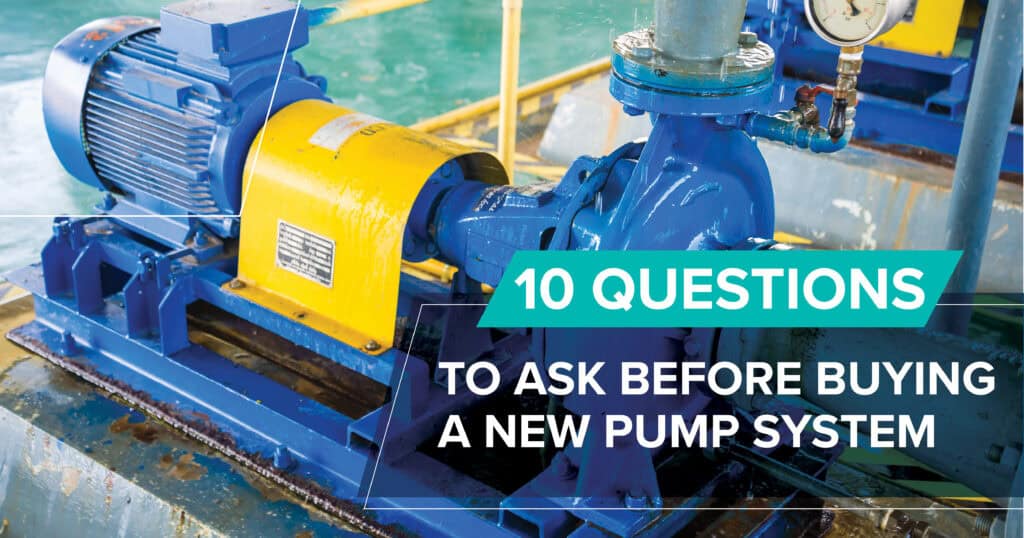Investing in a new pump system is a major decision that affects efficiency, reliability, and long-term operational costs. Whether you’re upgrading an existing system or installing a new one, choosing the right pump requires careful evaluation. Here are key questions to ask before purchasing a pump system.
1. What Is the Application?
The first step before selecting a pump is understanding its intended use. Are you pumping water, chemicals, slurries, or high-viscosity fluids? The type of liquid, its temperature, and any solids present determine the best pump type.
2. What Flow Rate and Pressure Do You Need?
Flow rate (measured in gallons per minute or cubic meters per hour) and pressure requirements are crucial. If the rate is too low, the pump won’t meet demand. If it is too high, you risk unnecessary energy consumption and wear. Work with an expert to determine the optimal balance for your operation.
3. What Is the Total Dynamic Head (TDH)?
TDH accounts for vertical lift, friction loss in pipes, and pressure requirements. Understanding TDH ensures your pump can efficiently move the fluid to its final destination without excessive strain or energy waste.
4. What Is the Pump’s Efficiency?
Pump efficiency directly impacts energy costs. Look for a pump with a high-efficiency rating to minimize operational expenses. Variable frequency drives (VFDs) can also adjust pump speed based on demand to improve efficiency.
5. Which Pump Materials Should Be Used?
The pump’s material must be compatible with the fluid being pumped. Corrosive chemicals, abrasive slurries, and high-temperature fluids require specific materials. Examples include stainless steel, cast iron, or special alloys to ensure durability and longevity.
6. What Maintenance Will Be Required?
All pumps require maintenance, but some designs are easier to service than others. Consider factors such as seal types, bearing lubrication, and access to critical components. A pump that’s easy to maintain will reduce downtime and extend service life.
7. What Are the Installation Requirements?
Space constraints, mounting requirements, and environmental conditions (for example, indoor vs. outdoor installation) all affect pump selection. Ensure the pump can be installed in your facility without costly modifications.
8. Does the Pump Meet Industry Standards?
Check whether the pump meets industry certifications such as ANSI, API, or ISO standards. Compliance with these regulations ensures quality, safety, and compatibility with other system components.
9. What Is the Total Cost of Ownership (TCO)?
The up-front cost of a pump is one factor. Consider long-term expenses. Look at energy consumption, maintenance costs, and potential downtime. A lower initial cost may not always result in the best investment if ongoing costs are high.
10. Does the Supplier Offer Support and Spare Parts?
A reliable pump service provider should provide technical support, training, and readily available spare parts. Partnering with a company that offers strong after-sales service ensures you receive the most from your pump system.
Find the Best Pump with DXP Pacific
Choosing the right pump is essential to optimizing performance and efficiency. At DXP Pacific, we specialize in helping customers select and maintain pump systems tailored to their unique needs. Contact us today to discuss your requirements and find the perfect solution!

